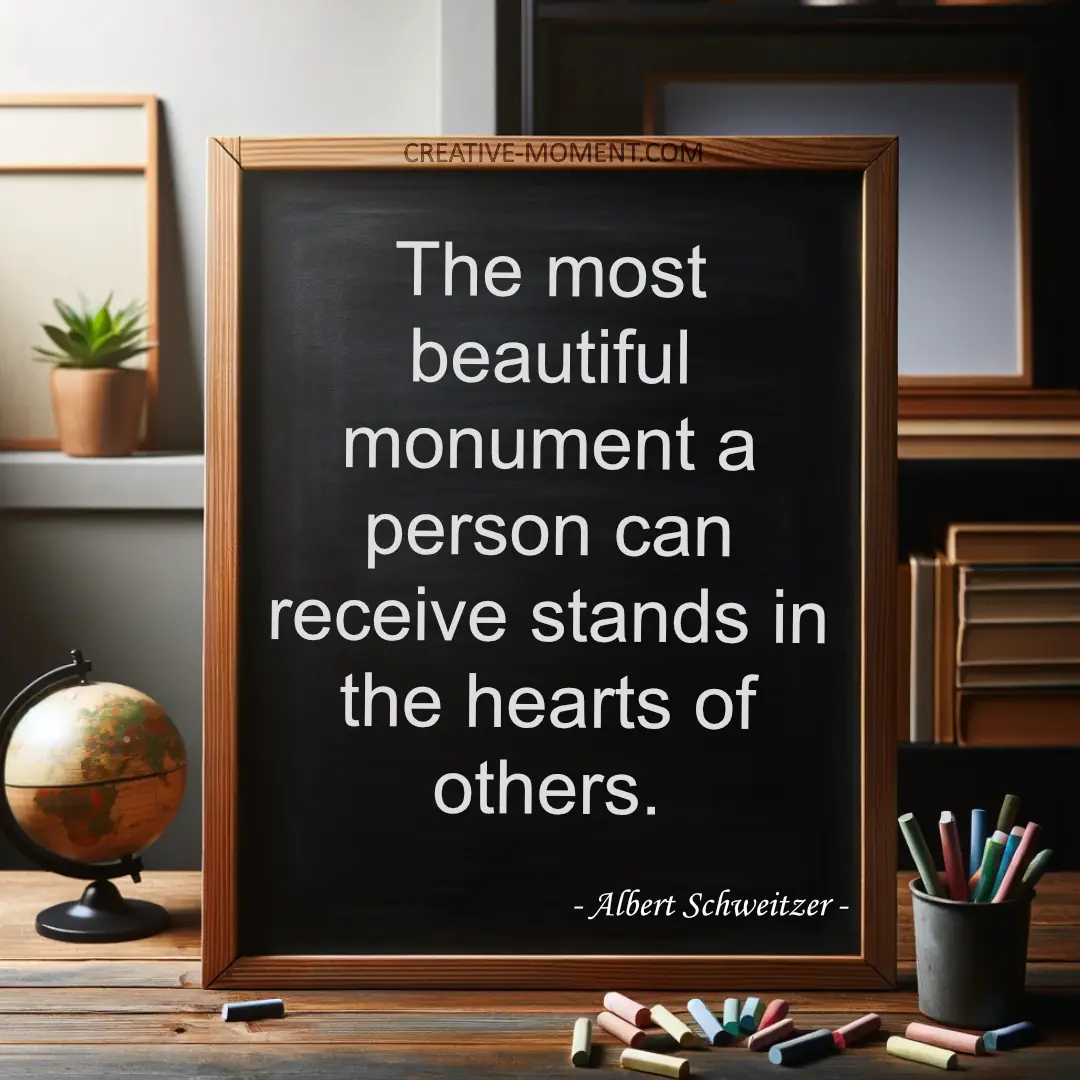Saying: The most beautiful monument a person can receive stands in the hearts of others
Info
- Title: The most beautiful monument a person can receive stands in the hearts of others
- Type: Sayings
- Category: Wisdom and Insights
- Print: Download as PDF for printing
Albert Schweitzer, a German physician and Nobel Peace Prize winner, is renowned for numerous poignant quotes, including: "The most beautiful monument a person can receive stands in the hearts of others." Schweitzer wrote this in the context of his humanitarian efforts and ethical philosophy. The quote powerfully emphasizes the significance of human relationships over material or visible honors.
Origin and Usage of the Quote
The author of this quote is the renowned physician, philosopher, and Nobel Peace Prize laureate Albert Schweitzer. Originally written in German, the exact original text is: "Das schönste Denkmal, das ein Mensch bekommen kann, steht in den Herzen seiner Mitmenschen." This statement emerged from his extensive philosophical reflections on ethics, humanity, and the essence of remembrance. Schweitzer's thought has been particularly used in speeches, humanitarian work, and commemorative culture to highlight the importance of moral values.
Meaning and Interpretation of the Quote
Albert Schweitzer’s quote highlights that the true meaning of a life does not lie in material goods or physical monuments, but in the impact a person has on others. It serves as a call to focus on ethical values and human relationships.
A central aspect is the interpersonal connection which is enduring and impactful. This form of remembrance is longer-lasting and more valuable than material honors that may fade or lose meaning over time.
The emphasis is placed on the heart as a metaphor for feelings, thoughts, and memories. Here, the heart symbolizes empathy, love, respect, and appreciation – emotional aspects that significantly shape the lasting memory of a person.
Furthermore, the quote can be seen as an encouragement to evaluate one's actions in terms of their lasting impact. It underscores that the true legacy of a person lies less in visible achievements, and more in their positive effect on others.
- Importance of human relationships: Emphasis on emotional connections rather than material recognition.
- Enduring nature of remembrance: Emotional impressions remain deeper and longer.
- Moral and ethical values: Emphasizing empathy and compassion as core elements of human existence.

